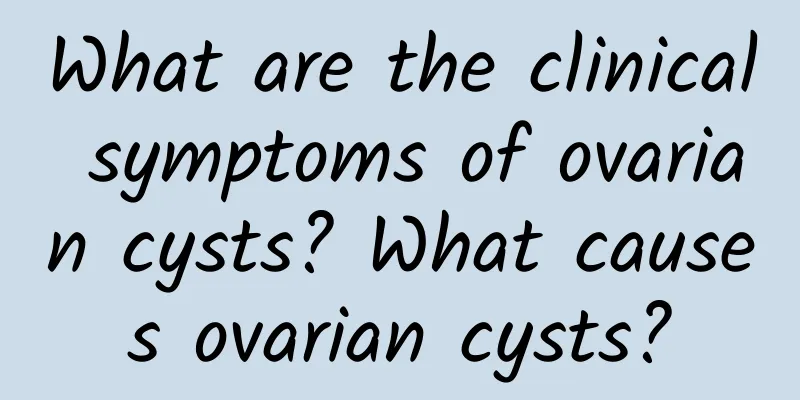A must-read for menopause! 6 ways to end "heartache"

|
Fat women get sad! According to statistics from the Ministry of Health and Welfare, in 2014, as many as 20,000 women lost their precious lives due to heart disease, diabetes, hypertension and cerebrovascular disease, and the mortality rate has increased by nearly 100% every 5 years after menopause. The National Health Administration reminds that abdominal obesity after menopause will increase the risk of three highs and heart disease. Menopausal women should manage their lifestyles early to avoid the distress of "major heart problems." Women in menopause are more likely to have abdominal obesity due to the influence of hormones in their bodies, which can also increase the risk of cardiovascular disease in the long term. According to the Ministry of Health and Welfare's annual report on causes of death, in 2014, the number of deaths from heart disease (excluding hypertensive diseases) among women was 7,915, with diabetes accounting for 4,963 deaths, cerebrovascular disease accounting for 4,755 deaths, and hypertensive diseases accounting for 2,634 deaths, ranking second, third, fourth, and sixth among the causes of death among women, respectively. A total of 22,67 people lost their lives that year. It should be noted that women have a higher mortality rate due to the aforementioned diseases after menopause. Abdominal obesity increases the risk of cardiovascular disease, menopausal women need to pay special attention Women between the ages of 45 and 52 often experience menopausal symptoms such as sleep disorders, depression, mood disorders, arthritis and osteoarthritis, and urinary system problems because the body's ovarian function of secreting female hormones gradually declines. In addition, National Health Administration Director Chiu Shu-ti reminded that "excessive waist circumference" and "overweight and obesity" are not only important factors that affect the health of postmenopausal women, but also make postmenopausal women a high-risk group for cardiovascular disease. According to the physical examination results of adult preventive health care service users in 2014, among women over the age of 55, the prevalence of the three highs among those with excessive waist circumference is higher than that among those with normal waist circumference. Among those with excessive waist circumference, 28.2% have hypertension, 20.1% have high blood lipids, and 13.7% have high blood sugar. 13.1% have any two of the above, and 2.4% have all three. Obesity is one of the causes of the three highs and metabolic syndrome. Even if women do not gain weight after menopause, the distribution of body fat will change due to hormones. Abdominal fat will increase and subcutaneous fat in the buttocks will decrease. If the waist circumference is too large, it means visceral fat accumulation, which increases the risk of cardiovascular disease. The prevalence of the three highs in women with excessive waist circumference after menopause has increased significantly. (Information provided by National Health Administration) Solve the "biggest problem"! Menopausal women do this According to the National Health Administration's "2013-2014 National Nutrition and Health Status Change Survey," 765 women aged 40 and over were actually measured and it was found that 57.8% of women had a waist circumference of more than 80 cm. To this end, the National Health Administration provides 6 lifestyle health actions, calling on menopausal women to pay attention to the three highs and obesity that can cause cardiovascular diseases, and reduce obesity so as to have a good "heart". 【6 actions to maintain health for menopausal women】 1. Balanced diet / Eat less sugar and salt, choose good oil (say no to trans fatty acids, eat less animal fat, choose natural vegetable oil), eat more fruits and vegetables, nuts, and brown rice, and develop the principle of "eat five fruits and vegetables a day, and eat three meals a day smartly" to increase fiber intake and satiety; drink boiled water instead of sugary drinks; eat less snacks, midnight snacks and desserts; eat three meals a day and eat a balanced diet, chew slowly when eating, and keep 80% full at each meal. 2. Regular exercise/ Make full use of the local community environment and resources to engage in sports such as walking, rhythmic dancing, jogging, cycling, aerobics, Tai Chi, Qigong, Yuanji dance, croquet, etc. The World Health Organization recommends that adults should get at least 150 minutes of moderate-intensity physical activity per week. 3. Weight control / With the help of nutritionists and sports professionals, eat smartly, exercise happily, weigh yourself every day, and control your weight. 4. Regular screening/ utilize the adult preventive health care services provided free of charge by the National Health Administration (once every three years for people aged 40 to 65, and once a year for those aged 65 and above) to detect and intervene early. 5. Take medication regularly/ Patients with chronic diseases such as the three highs should actively adopt a healthy lifestyle, seek medical treatment on time, follow the doctor's prescription to take the correct medication and follow up regularly. Do not adjust the dosage according to symptoms on your own. 6. Stay happy/ learn to manage your emotions, and arrange leisure activities such as reading or traveling. If you have emotional problems, in addition to seeking help from a professional doctor, you can also talk to your family and friends or actively seek help from support groups. |
<<: Increase satiety and help lose weight! 8 low-calorie foods that can help you lose weight
>>: Taught by fitness trainer himself! OLs must know 4 steps to develop a beautiful buttocks
Recommend
How to regulate irregular menstruation
How to regulate irregular menstruation? Menstruat...
Health care methods and precautions for uterine fibroids
Uterine fibroids, also known as uterine leiomyoma...
What should I do if I have uterine fibroids during pregnancy? Treatment of uterine fibroids during pregnancy
What should I do if I have uterine fibroids durin...
Causes of recurring bacterial vaginosis
The cause of candidal vaginitis. According to a s...
Experts explain the causes of moderate cervical erosion
Moderate cervical erosion is a common type of cer...
Exercise in the late stage of cervicitis
Exercise in the late stage of cervicitis. We know...
Emotional problems may also cause menstrual irregularities
Irregular menstruation often occurs in women. Eac...
Is uterine fibroid 2.7*1.8cm serious?
Uterine fibroids are 2.7*1.8cm. If there are no o...
Typical symptoms of threatened miscarriage are
Typical symptoms of threatened abortion include a...
Specific introduction to the treatment of pelvic inflammatory disease
Patients with pelvic inflammatory disease all kno...
What are the early symptoms of miscarriage?
Early pregnancy is a special stage. During this p...
Will Meal Replacement for Weight Loss Make You Gain Weight Again? Nutritionist’s answer...
Q1: Do I need to specifically choose meal replace...
What are the treatment measures for dysmenorrhea in life?
Among gynecological diseases, dysmenorrhea is one...
What are the symptoms of cervicitis?
Summer is the peak season for female cervicitis. ...
Is all the extra fat caused by stress? 7 questions to see if you are gaining weight due to stress!
When a few friends get together for a meal, if on...









